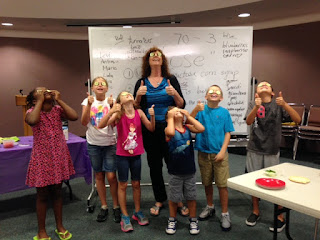"When we prioritize our well-being, our creativity, decision making, productivity, and our health all go up across the board."
--Arianna Huffington
Working with students with disabilities, I am conscious of how the once-in-century COVID-19 pandemic created layers of stress often invisible to others. Depression and anxiety have increased in students isolated at home for virtual school, staring into a computer for hours, struggling to maintain attention, not getting exercise outside, without contact with friends. Teachers may go weeks without seeing students who are learning at home and keep the computer camera off, limiting teachers' ability to observe subtle changes in behavior, appearance or affect. Some kids overeat during stressful times, especially now when parents may be working outside of the home, leaving kids alone for hours.
May is Mental Health Month. Mental Health America offers a list of 10 tools
that can help parents and their children. Your child may not say anything to you, but
their behavior, such as withdrawal, silence, lack of sleep, or bad
dreams, may indicate a need for help. When kids' mental health is suffering, it is up to us to act.
Here are Mental Health America's Top 10 tools:
- Connect with others
- Stay positive
- Get physically active
- Help others
- Get enough sleep
- Create joy and satisfaction
- Eat well
- Take care of your spirit
- Deal better with hard times
- Get professional help if you need help
Use these tips to ensure that you and your children are as healthy as
possible, in body, mind, and spirit. We all need Growing Healthy Kids!
With love and kindness,
Nancy Heinrich, MPH
Founder and Wellness Architect
